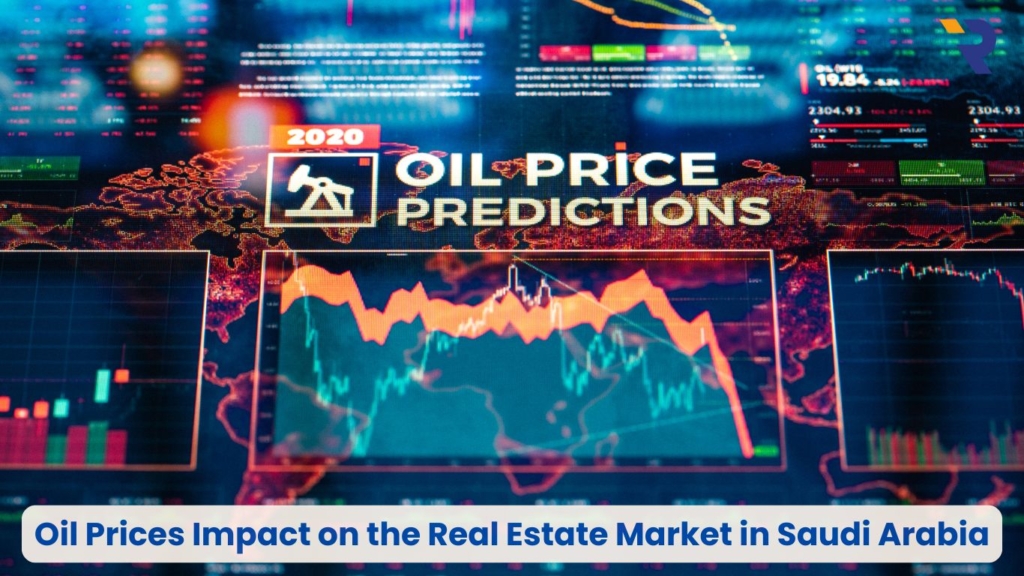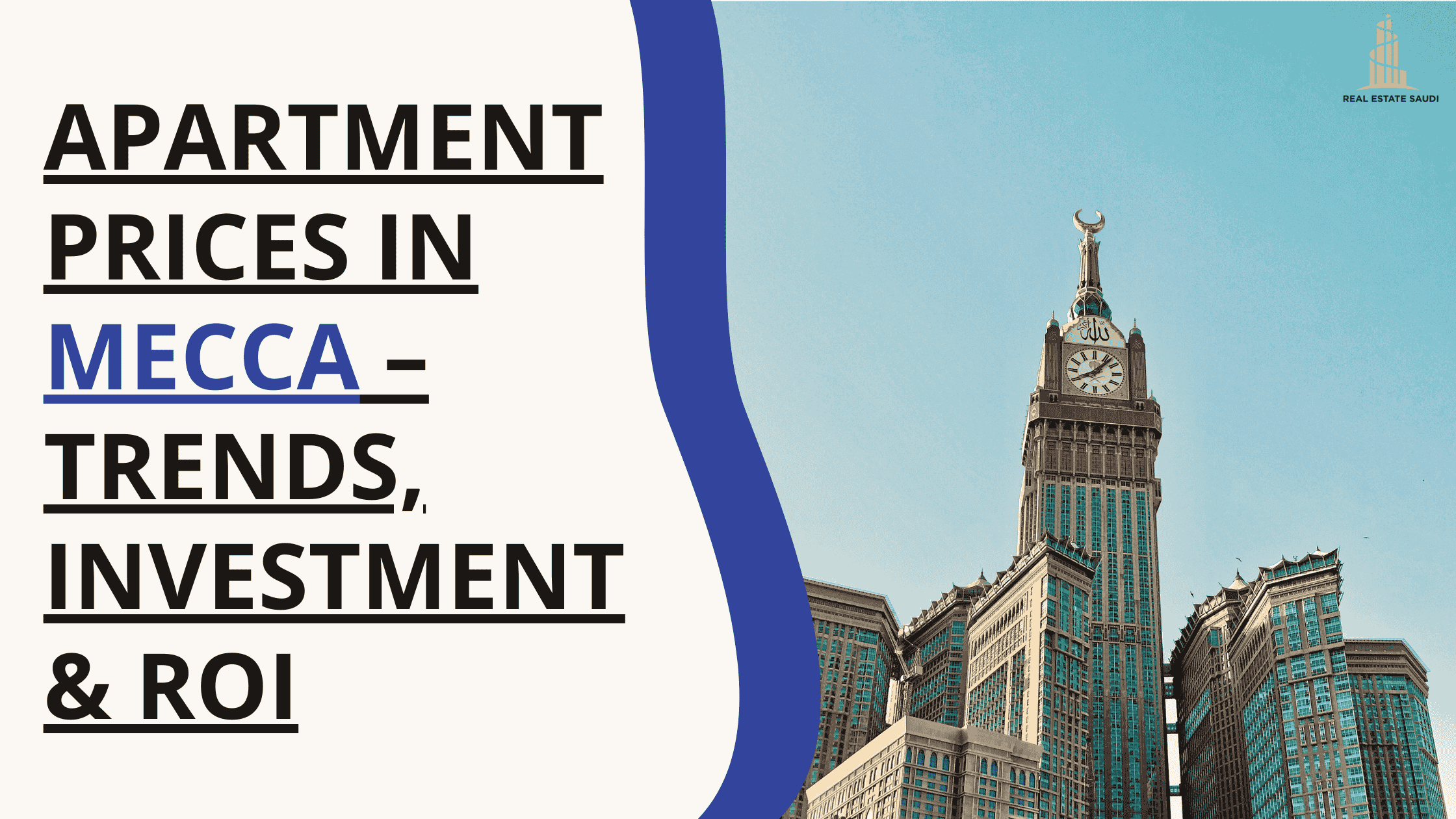Saudi Arabia’s economy has historically relied heavily on oil revenues, significantly influencing all aspects of economic life, including the real estate market. The complex relationship between fluctuating oil prices and the Saudi real estate market is integral to investment decisions, urban development, and overall economic stability. Investors, policymakers, and stakeholders must thoroughly understand this dynamic interplay to effectively navigate the Saudi real estate landscape, ensuring informed decisions and strategic foresight.
Do Oil Prices Affect the Real Estate Market in Saudi Arabia?
The impact of oil prices on Saudi Arabia’s real estate market is profound, shaping both the supply and demand sides extensively.
Rising Oil Prices and Economic Growth
Rising oil prices typically stimulate substantial economic growth, boosting government revenues and prompting increased public spending and improved liquidity. This growth directly influences the real estate sector through:
- Enhanced infrastructure investment, including transport networks, urban expansion, and public facilities.
- Increased demand for residential and commercial properties driven by higher disposable incomes and employment.
- Expansion of government-backed housing projects aimed at meeting the growing demand for affordable housing.
- Heightened consumer and investor confidence, fostering greater market activity.
Falling Oil Prices and Market Contraction
Conversely, a decline in oil prices can significantly affect the economy, resulting in decreased government revenues and constrained public spending. This scenario impacts real estate through:
- Reduced market liquidity and tighter lending conditions, making financing more difficult.
- Slowed or postponed infrastructure projects, impacting future development and growth.
- Lower investor confidence and increased caution among property buyers.
- Potential price declines in certain real estate segments as demand contracts.
Vision 2030 and Oil Dependency Reduction
Saudi Vision 2030 represents a strategic national initiative aimed at significantly reducing the economy’s dependency on oil revenues. Projects like NEOM, the Red Sea Project, and Qiddiya illustrate efforts to diversify economic activities, providing stability and growth opportunities independent of oil price fluctuations.
The Relationship Between Oil Prices and the Real Estate Market in Saudi Arabia
Historically, oil revenues have been a primary driver behind substantial investments in infrastructure and urban development, affecting property valuations, market liquidity, and economic cycles.
Infrastructure and Urban Development
Government expenditure, primarily funded through oil income, has traditionally supported significant infrastructure developments, including road networks, airports, railways, and city expansions. Such infrastructure improvements enhance property values, attract investments, and stimulate further market activity.
Mortgage Lending and Property Prices
Oil price fluctuations significantly influence financial liquidity, directly affecting mortgage availability and lending conditions. High oil prices improve liquidity, enabling easier access to mortgages, facilitating property ownership. Conversely, lower oil prices restrict lending capabilities, limiting mortgage approvals and dampening market dynamics.
Investment Opportunities in Low Oil Price Periods
Periods of lower oil prices, while challenging, present strategic opportunities for investors seeking undervalued real estate assets. Investors who capitalize during these downturns can benefit substantially as markets recover, driven by eventual stabilization in oil prices and improved economic conditions.
The Impact of Oil Prices on Different Types of Real Estate
Residential Real Estate
Residential real estate demand is closely tied to economic health, significantly influenced by oil prices. During periods of higher oil prices, demand for housing increases, driven by job creation, rising wages, and increased population influx. Government housing initiatives flourish, addressing housing needs effectively. Conversely, during downturns, affordable housing programs play a critical role in sustaining demand and maintaining market stability.
Commercial Real Estate
Commercial real estate demand, including office spaces and retail units, correlates closely with broader economic conditions. Prosperous periods driven by high oil revenues encourage business expansions and greater demand for commercial properties. However, sustained low oil prices can negatively impact business confidence and reduce commercial leasing activity, potentially resulting in decreased rental incomes and higher vacancy rates.
Investment Properties (Hotels, Resorts, Tourism)
The hospitality and tourism sectors typically experience growth during high oil price periods due to increased discretionary spending. However, Vision 2030 initiatives strategically diversify tourism and hospitality, significantly reducing the sector’s vulnerability to oil price volatility. Dedicated investments in tourism infrastructure ensure consistent long-term growth, irrespective of oil market cycles.
The Future of the Real Estate Market in Saudi Arabia Amid Oil Price Fluctuations
Despite continued volatility in oil markets, the future outlook for Saudi Arabia’s real estate sector remains robust, driven by diversification efforts, legislative reforms, and enhanced international investor participation.
Vision 2030 Mega-Projects
Ambitious projects such as NEOM, Qiddiya, and the Red Sea Development signal Saudi Arabia’s commitment to economic diversification. These mega-projects attract substantial domestic and foreign investments, generating stable real estate opportunities unaffected by oil market volatility.
Legislative Reforms
Recent legislative enhancements have significantly improved market transparency, streamlined real estate transactions, and expanded foreign ownership rights. These reforms boost investor confidence, foster stability, and attract diverse investment profiles.
Increasing Foreign Investment
Saudi Arabia actively promotes foreign investments by simplifying regulations, enhancing transparency, and facilitating access to the real estate market. Increased foreign participation significantly enhances liquidity, reduces dependency on oil revenues, and promotes sustainable growth.
Public-Private Partnerships and Housing Initiatives
Robust public-private partnerships, complemented by extensive government-supported housing initiatives and favorable mortgage financing terms, ensure sustained growth of the real estate sector regardless of fluctuations in oil prices. These partnerships stabilize demand, boost housing availability, and foster long-term sector resilience.
For Everything Related to the Saudi Real Estate Market, Consult Real Estate Saudi
Oil price volatility undeniably influences Saudi Arabia’s real estate market, yet proactive diversification efforts under Vision 2030 considerably mitigate these impacts, ensuring sector resilience and sustainable growth.
Are you looking to invest strategically in Saudi Arabia’s dynamic real estate market? Contact Real Estate Saudi today to receive expert guidance, insightful advice, and access to profitable investment opportunities tailored to your goals!
Certain FAQs
How do oil prices influence Saudi Arabia's real estate market?
Oil prices significantly influence the Saudi real estate market through their impact on economic stability, government spending on infrastructure, and consumer purchasing power. High oil prices typically drive growth and demand, while lower prices might lead to reduced market activity.
Is Saudi Arabia real estate investment affected by oil price volatility?
Yes, Saudi Arabia real estate investment is sensitive to oil price volatility. However, Vision 2030 initiatives aim to reduce this dependency by diversifying the economy, ensuring stable investment opportunities despite fluctuations in oil prices.
What are the current real estate trends in Saudi Arabia amid fluctuating oil prices?
Current real estate trends in Saudi Arabia show increased diversification, growth in tourism-related real estate, expansion of affordable housing projects, and greater foreign investment, all supported by Vision 2030 reforms.
Can Vision 2030 protect Saudi Arabia’s real estate market from oil price shocks?
Vision 2030 significantly reduces Saudi Arabia’s real estate market exposure to oil price shocks by promoting economic diversification, mega-project investments like NEOM and Qiddiya, and encouraging international investment and private-sector growth.
Are low oil prices an opportunity for real estate investors in Saudi Arabia?
Yes, periods of lower oil prices can present strategic opportunities for real estate investment in Saudi Arabia. Investors may capitalize on undervalued properties, anticipating future gains as markets recover, supported by economic diversification and government incentives.





